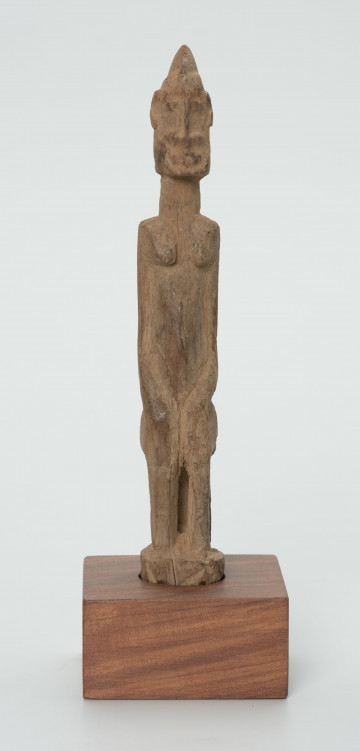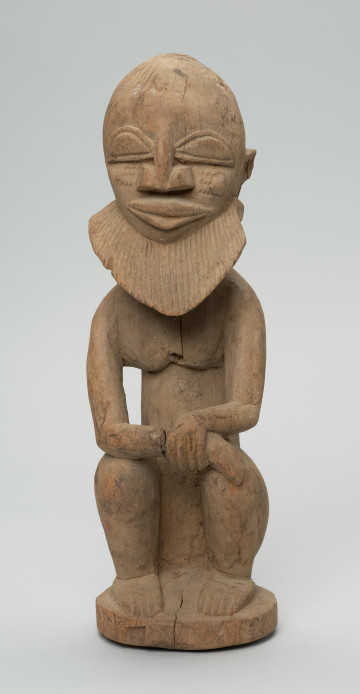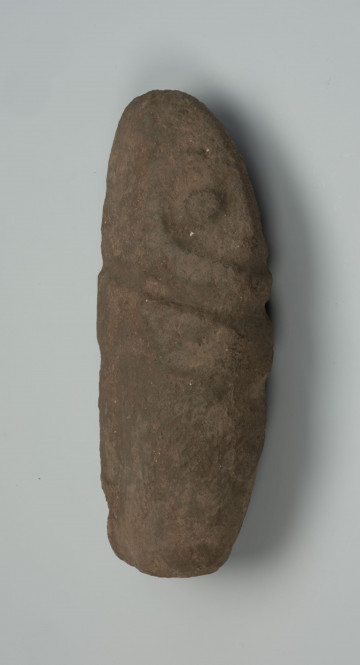
Figurine - ancestor
między 1901 — 1950
National Museum in Szczecin
Part of the collection: Collection of Dogonian art
The Dogon are people living in the south-central part of the Republic of Mali. Its number is estimated at 500-600 thousand. The largest concentration of their villages is found along a 150 km stretch of the Bandiagara Escarpment. The Dogon are a patriarchal society in which men play a dominant, responsible role. Their tasks include managing the people, directing religion and the economy and politics. The men's world is divided into four hierarchical, hermetic groups, further divided internally into several sub-groups. These include young, teenage, circumcised men, who are not yet experienced; adult Dogon, full of vitality and burdened with responsibility for their families; older family leaders, who have the duty to pass on traditions; and the oldest men with a great deal of knowledge, who are already close to the category of their ancestors. The first group standing lowest in the hierarchy, which includes young, circumcised men, is internally divided into three subgroups: unrunw soro (children who develop), saga tara unrunw (children who are planted) and anrunw poju (excellent men). The unrunw soro group includes young boys who have already undergone circumcision, aged 12-20. The second, saga tara unrunw, brings together men between the ages of 20-28, and the last, anrunw poju, brings together Dogon between the ages of 28-36. The first two subgroups integrate inexperienced men who must submit to elders. Its members are entrusted with jobs that do not require much experience or are not associated with greater risk. Heavier duties are assigned to the senior group. These men must show courage and fortitude.
Ewa Prądzyńska
Author / creator
Dimensions
cały obiekt: height: 26 cm, width: 3,5 cm
Object type
figure
Creation time / dating
Creation / finding place
Identification number
Location / status

między 1901 — 1950
National Museum in Szczecin

między 1951 — 2000
National Museum in Szczecin

między 1951 — 2000
National Museum in Szczecin
DISCOVER this TOPIC
National Museum in Szczecin
DISCOVER this PATH
Educational path